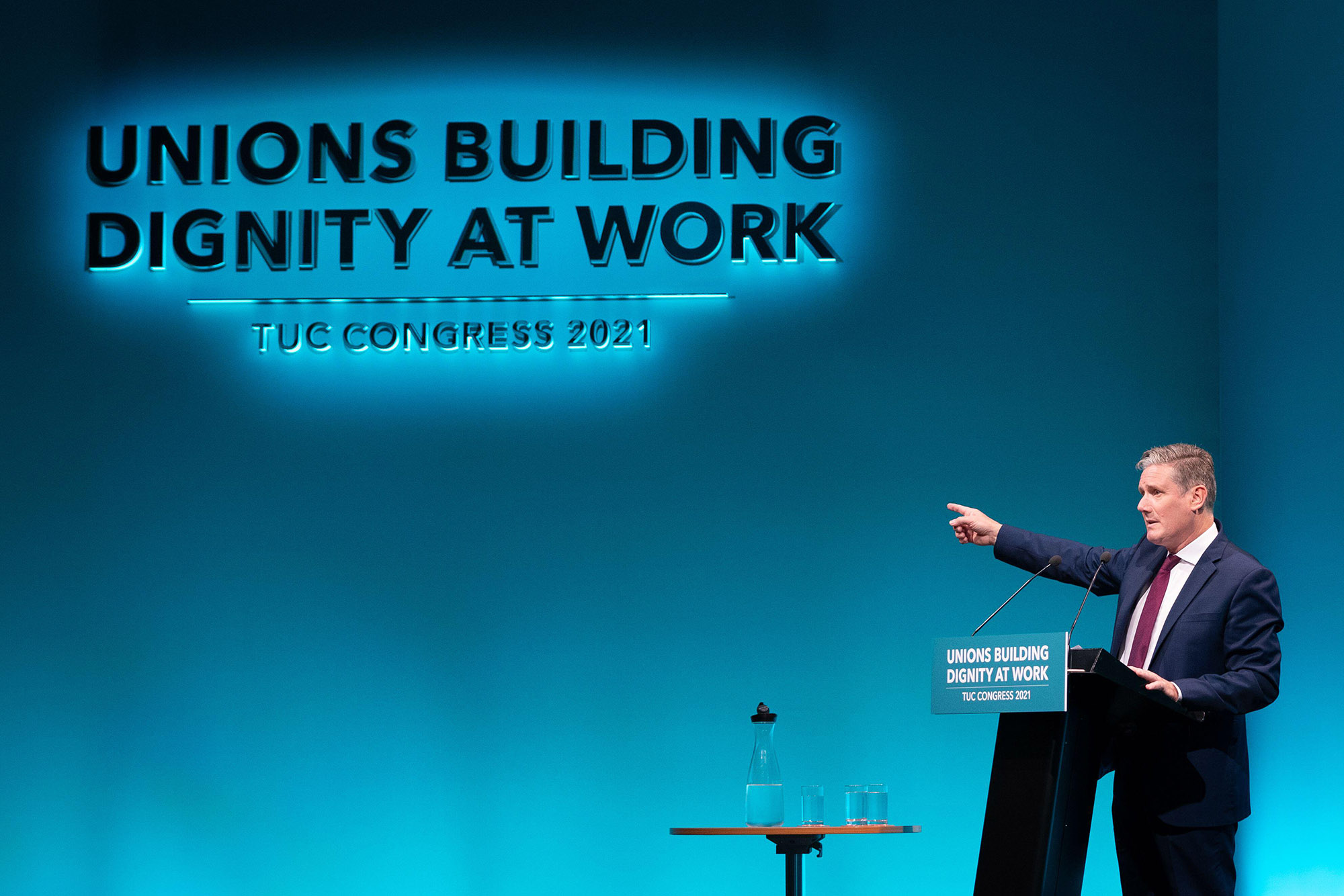GMB General Secretary Gary Smith Vows To "Treat Labour Like Any Other Employer"
Gary Smith has vowed to "take on" Labour over worker's rights.
4 min read
As Labour prepares to gather in Brighton, new GMB General Secretary Gary Smith says party chiefs are more focused on putting workers on the dole than listening to their concerns
GMB General Secretary Gary Smith is not afraid to take on Labour on their own turf. Despite his union being the party’s third largest donor, one of Smith’s first moves on being elected in June was to turn off the funding taps to Labour in London, after an Islington council worker was sacked for taking part in a protest against road closures.
When the party announced its dire financial position could lead to a round of controversial compulsory redundancies, GMB members working for Labour were balloted and voted overwhelmingly in favour of strike action. In the face of an embarrassing walk-out, the party backed down.
Smith, a trade union veteran and former secretary of the GMB’s Scottish branch, insists his priority is to reinvigorate the case for workplace organisation rather than engage in politics, but he is keen to point out the shift is a result of Labour’s failure to focus on the issues facing workers.
"Increasingly, the party has become more and more remote from the concerns of working class people,” Smith says. “The Parent Teacher Association in Primrose Hill does not represent mainstream thinking in this country, it doesn't represent the concerns of most working class communities.
"If Labour wants to be the party of workers it is going to need demonstrate that not by empty slogans but about actually talking about the issues that matter to working class people. What Labour is obsessing about is putting workers on the dole rather than actually focussing on getting working class people back voting for them."

As was the case in Islington and Westminster, Smith’s clear priority will be to represent GMB’s membership regardless of political loyalties. Vowing to treat Labour like any other employer he warns that if they “do the wrong thing, we will take them on.”
But the union chief is clear that he is not solely singling out Keir Starmer for criticism, pointing out that Labour’s disastrous Copeland by-election defeat was inflicted under Jeremy Corbyn and in a seat with one of the highest trade union memberships in the country.
“It’s not our problem as a union. That's the Labour Party's problem. That's something Labour needs to figure out. What we need to do is to concentrate on the concerns of our members and campaign on the issues that matter to working people.”
Having joined GMB as a 16-year-old gas apprentice, Smith now takes over the union during a period of turmoil for both the country and his organisation. The impact of the pandemic exposed the fragility of workers’ rights, while the union was described by an independent report "institutionally sexist" in the wake of a scandal which engulfed his predecessor, Tim Roache.
"[The pandemic] has thrown into sharp relief the value that is afforded to people who do provide essential roles in society, versus jobs, frankly, in areas like public relations. The key issue for us really is about rights at work, but it's also the value and security of employment," Smith says.
Vowing to give a “voice” to workers, the union launched a campaign to give care staff a £15 minimum wage and is opposing mandatory vaccines for those working in the sector. Smith is also pushing for a wider conversation about the UK’s energy industry, saying it is “madness” that British jobs have been offshored to China relying on diesel burning ships to import goods back to the country.
Despite Starmer’s insistence that Labour is still the party of workers, Smith has broken away from the traditional fit of a union boss. Vowing not to “lecture” Labour over their direction, he insists he will instead lead by example.
“Sadly, large swathes of our membership don’t vote Labour anymore, and they don't care about party politics,” Smith says. “They don't want me spending my time on party politics. What they want my tenure to be about, and why they voted for me, is [to see] campaigning on issues that matter to them in the workplace.
